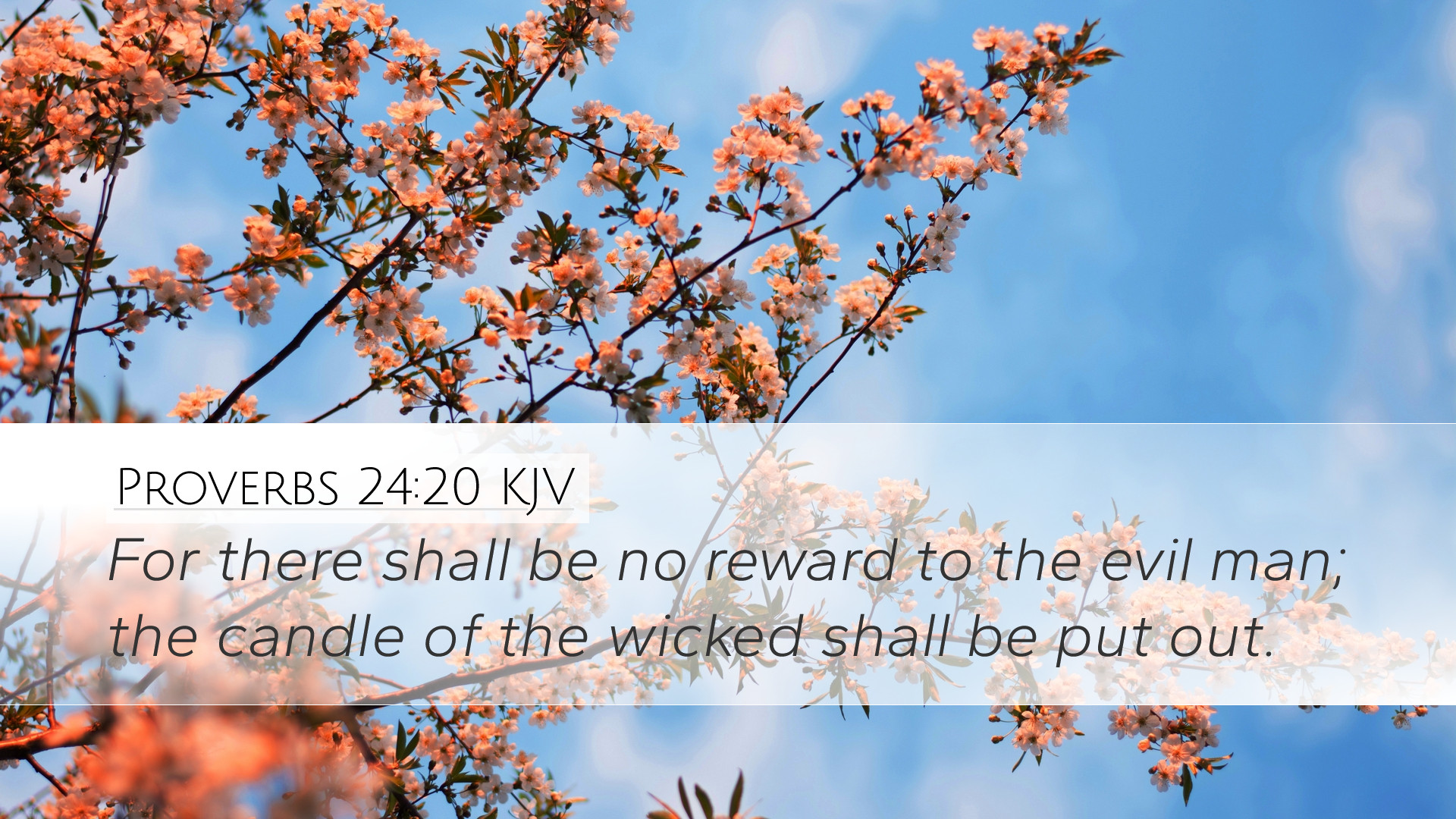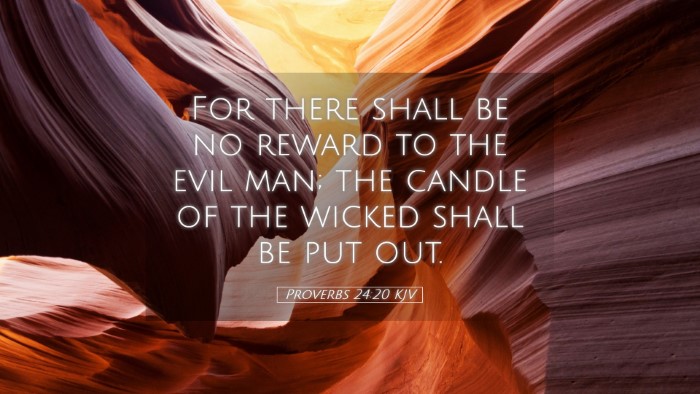Commentary on Proverbs 24:20
Verse: "For there shall be no reward to the evil man; the candle of the wicked shall be put out."
This verse, nestled within the wisdom literature of Proverbs, speaks profoundly regarding the fate of the wicked contrasted with the righteous. The verse succinctly asserts that the wicked will meet a grim end, devoid of reward, and their influence will extinguish as if a candle is snuffed out.
Contextual Analysis
The surrounding verses of Proverbs 24 emphasize the importance of wisdom, restraint, and living a life that adheres to God’s commandments. The context speaks to the realities of life where the paths of the just and the unjust are laid bare.
Wisdom Literature
Being part of the wisdom literature, the book of Proverbs imparts moral truths through pithy sayings. Interpreters like Albert Barnes highlight this style to convey universal truths, utilizing analogies that are impactful and easy to remember.
The Nature of Evil
The phrase "no reward to the evil man" underscores the futility and ultimate disappointment of the wicked. Matthew Henry elaborates that the evil man, regardless of apparent success, will not receive lasting benefits; his current gain is like harvest without future fruit. This concept aligns with the core Hebrew belief in divine retribution.
The Candle of the Wicked
Comparatively, the imagery of a candle represents life, influence, and prosperity, which may initially appear to shine. However, Adam Clarke points out that this light is fleeting. This transient nature of the wicked's prosperity stresses the inevitable extinguishing of their 'light,' emphasizing that reliance on sinful ways leads to ultimate darkness.
Theological Implications
The verse invites a theological reflection on divine justice. The concept of a reward implies a system of morality rooted in God’s character. Considerations from Barnes implicate that the absence of reward for evil is an inescapable divine law, hinting at God’s overarching providence. The theological assertion here is that evil cannot coexist eternally with divine order.
Encouragement for Righteous Living
For pastors and theologians, this verse provides motivation for righteous living. Henry emphasizes that believers should be uncompromising in their adherence to righteousness, reflecting the eventual outcome destined for both the wicked and the righteous. This distinction serves as a reminder of the rewards awaiting the faithful.
Practical Applications
- Understanding Consequences: Believers need to comprehend that choices bear consequences.
- Encouragement to the Feeble: The righteous may sometimes find themselves disheartened when they observe worldly successes of the wicked. This verse assures them of the eventual judgment.
- A Call to Action: Pastors might remind congregants of the importance of a faithful walk, warning against the allure of temporary gains associated with wickedness.
Conclusion
In summary, Proverbs 24:20 encapsulates a profound truth regarding the nature of evil and the inevitable judgment that follows. As Clarke aptly summarizes, the righteous should take comfort in knowing that God’s justice is inescapable. For scholars, the verse serves as an important reminder of the wisdom inherent in divine retribution. It encourages deep reflection on personal life choices and their future implications.


